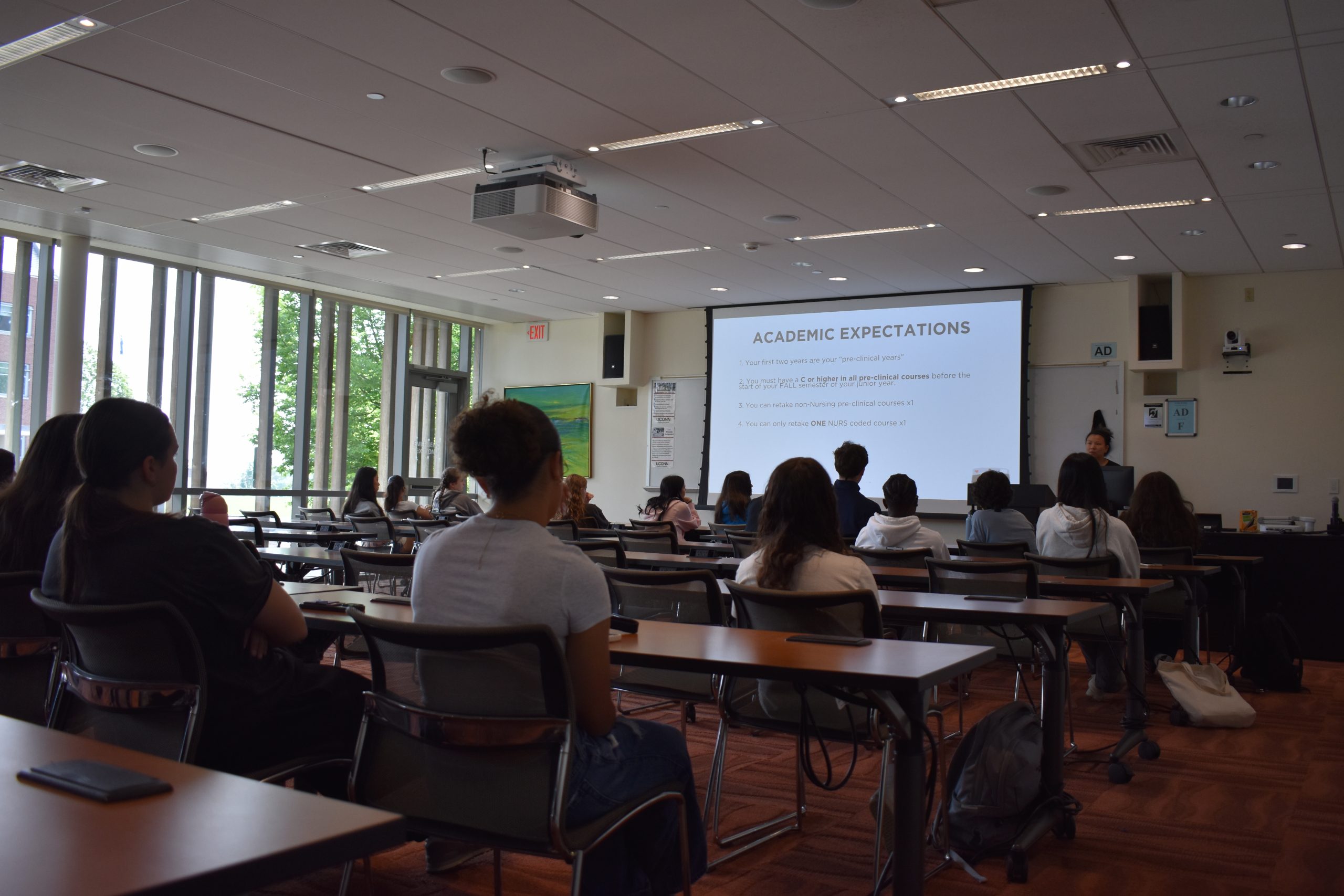
An innovative interdisciplinary program for UConn medical students and their peers in the health professions offers students valuable insight into the plight of underserved patients who lack access to high-quality health care.
Now in its fourth year, the Urban Service Track program exposes the next generation of health care providers to the unique challenges and needs of the most vulnerable patient populations, including urban elderly and youth; migrant and refugee populations; individuals living with HIV/AIDS; people who are incarcerated; veterans; substance abusers; and the under- and uninsured.
To date, 21 Urban Health Scholars have completed the program, in which dental, nursing, medical, and pharmacy students work and learn alongside one another. Students participate in community health clinics and forums, legislative visits to Washington, D.C., and educational events that address such topics as cultural and linguistic barriers, health care financing and management, and community resources. Other elements of the program include specially tailored instruction, mentoring from faculty and community health care providers, and hands-on clinical practice opportunities.

“Working alongside dental, nursing, and pharmacy students at community events strengthens our ability to provide effective health care,” says Tiffany Chen, a School of Medicine Urban Health Scholar. “Everyone contributes to a cohesive and shared plan of action.”
This interdisciplinary approach is what makes UConn’s program so innovative. By pooling the various specialties, Urban Service Track is positioned to address contemporary health care issues, including the nation’s shortage of primary care providers.
“The curriculum’s inter-professional nature will produce providers prepared for the inevitable changes in health care delivery that ultimately will improve patient outcomes and reduce cost,” says Dr. Bruce Gould, UConn associate dean for primary care and director of the Connecticut Area Health Education Center, who conceived of the program.
Faculty mentor and family practitioner Dr. Hugh Blumenfeld says Urban Service Track offers insights into “how socioeconomic forces shape the resources available in urban communities,” and the special medical services and skills needed in those environments.
Connecting with the Underserved
One important measure of the program’s success is its evident appeal to students, according to Petra Clark-Dufner, director of Urban Service Track. Initially created to support up to 16 students per year, the program now attracts more than triple that number annually.
The roster of scholars is impressive and diverse. Students from Connecticut’s urban and suburban areas team up with others native to Albania, Bangladesh, Bosnia and Herzegovina, China, South Korea, and the Ukraine. Some are undergraduates, while others have already earned degrees from Yale, Wesleyan, Brown, Smith, Middlebury, and the California Polytechnic State University. A few are embarking on a second or third career; others are obtaining multiple degrees.
Clark-Dufner says about half of the program’s graduates are pursuing residency training or are employed by urban or state hospitals. Another 25 percent work with community clinics and pharmacies.
“Engaging students as they begin their health care careers creates building blocks and establishes an early connection to those [underserved] communities,” says Alysia Monaco, a 2008 graduate of Urban Service Track and a staff registered nurse at Massachusetts General Hospital’s cardiac surgical ICU. “This ultimately allows provision of the same standard of care to all, regardless of social standing.”

Graduate John McCarthy, Class of 2010 salutatorian and now a retail pharmacist in Hamden, Conn., applauds Urban Service Track for giving voice to the underserved and for developing a sense of advocacy among students.
“I’ve applied the teachings of Urban Service Track to every patient who comes into the pharmacy,” he says. McCarthy was last year’s recipient of the prestigious Excellence in Public Health Pharmacy Practice Award.
“The greatest benefit of the Urban Service Track for me is a very conscious awareness that the playing field for access to quality health care is not level,” says Abdullah Wardak, a graduate of the pharmacy school and Urban Service Track who is now employed in the long-term care field and as a part-time retail pharmacist in Hartford.
Improved personal and professional confidence in working with patients is another beneficial aspect of the program, says Laura Huling, a School of Dental Medicine scholar.
Urban Service Track is supported by state and federal funding, along with private and institutional grants, Clark-Dufner says. Among those essential sources are the U.S. Department of Health and Human Services through the Health Resources and Services Administration; the Connecticut Area Health Education Center; UConn’s School of Medicine and Center for Public Health and Health Policy; the Connecticut Health Foundation; and the Richard Davoud Donchian Foundation.
“UConn’s Urban Service Track program is a dynamic example of a successful academic and community partnership,” Clark-Dufner adds. “It is leading the way in creating a pipeline of high-quality medical professionals who value inter-professional teamwork and patient-centered care for the urban underserved.”
Related story:
Medical School’s Urban Service Track Builds Pipeline for Inner Cities


